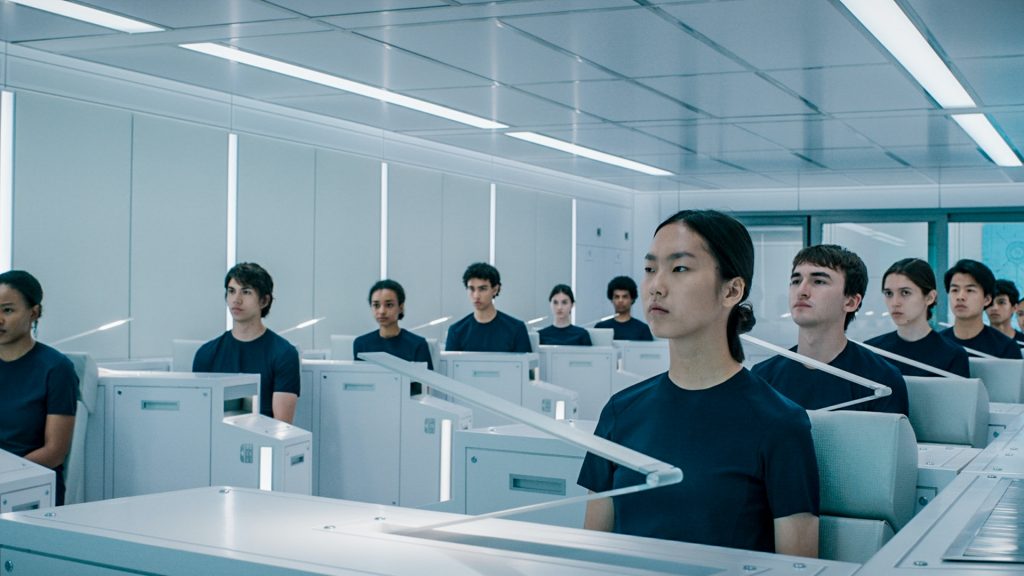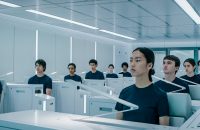
Film is a weird art. The barrier to entry in the film industry is so outrageously high, and the task of making a movie so outrageously difficult, that you’d think more of the cream would rise closer to the top. While film requires a high level of technical skill, depth of writing really isn’t necessary to get your movie made. Other art forms carry with them a certain expectation of sophistication, if not of aesthetic, then of thought.
This is a snooty way of saying that filmmakers don’t usually make very good philosophers. And that’s not typically a problem, but unfortunately, Voyagers, written and directed by Neil Burger, wants very badly to be high art. Or so his interview with rogerebert.com would imply: “To me, those images became about human nature in a vacuum. And about who are we at our core, when we strip away all of our cultural influences? Whether you can really do that or not is another thing, but the concept of doing that: do we have a core set of values, a core set of sensibilities? Who are we? Are we good? Are we bad? Are we just animals? Are we evil? Do we tend to the good? And so I wanted the movie to be an exploration of that sort of, as I said, human—is there such a thing as being a pure human?”
The plot of Voyagers follows a familiar sci-fi trajectory with a promising Lord of the Flies twist: as climate change threatens human life on earth, 30 test tube babies are bred for the express purpose of manning a colonizing ship to another inhabitable planet, 86 years away. But when they stop taking the drug suppressing the messier aspects of their teenage personalities, the mission threatens to collapse.
This is a very competently made movie, which is about the nicest thing I can think of to say about it. The cast manages to seem believably childlike and mature for their age at the same time, and the camera’s treatment of the sterile, white geography of the ship makes for an appropriately claustrophobic experience. There are shots that are genuinely artful, and scenes that are genuinely tense.
But if you’re familiar with Neil Burger’s previous work on Divergent and Limitless, you know his interest in philosophical questions doesn’t go much farther beyond the surface of their “what if humans broke the rules” premise. Interested though he clearly is in the messier aspects of human society, he shows a flagrant lack of ability to portray it. Questions of tribalism, ethics, and the extent to which humans are able to overcome their worst impulses are boiled down to “some people are bad and do bad things.”
The human experiences the kids regain after they stop taking their personality suppressant seem flat and crude. The drugs go away, and the kids revert to their natural, beautiful state of…sprinting down hallways and wrestling? You know, like the kids do. Even their sexual explorations don’t look like any fun at all. There’s none of the awkwardness or nervousness you might expect as a demonstration of the fullness of life they’ve been missing out on, just a bunch of joyless mooshing of bodies with expressions you’d expect to see on…why, on someone drugged up.
Also, even thought the cast is heavily nonwhite, all three of our leads are white. That’s weird, right? I’m sure it wasn’t on purpose, but it’s a disturbing tell of Hollywood’s understanding of white people as “looking like leaders” even in a situation as isolated as it can possibly be from the influence of any cultural norms. Apparently a “pure human” society still reverts to white supremacy. That’s a nice implication to carry out of the theater. Just the cherry on top of a disappointment sundae.
5/10, 3 for a solid cast, 2 for some gorgeous space photography. Minus 5 points for being thematically way too big for its britches.




